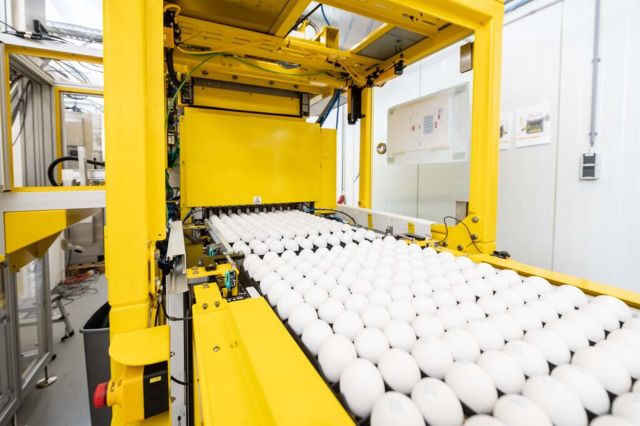In Ovo: Leiden Innovation for Poultry Welfare with Machine 'Ella'
The poultry industry is a fast-growing and crucial sector that is important for the global protein supply. The Dutch company In Ovo, which can be found at the Leiden Bio Science Park, is playing an increasingly important role in this sector. Since its founding in 2011 by Will Stutterheim and Wouter Bruins, In Ovo has developed into a pioneer in improving poultry welfare, driven by the ambition to tackle ethical challenges within the sector. This way, the founders have come up with a solution to a long-standing problem within the poultry industry.
Social Disapproval and Innovative Solutions
The problem and one of the most pressing issues in the poultry industry is the fate of male chicks born in hatcheries. These chicks have no economic value because they cannot be used for egg production, and are therefore widely killed shortly after hatching. This fate affects as many as 6.5 billion male chicks every year, 300 million of which come from the European Union. Fortunately, steps have been taken in the right direction in recent years. Thus, social disapproval of this practice and awareness of the importance of poultry welfare have increased. As a result, the practice is already banned in countries such as Germany and France. In addition, more and more innovative discoveries are being made, including In Ovo's technology.
The Machine 'Ella'
What started as an idea at Leiden University has, after 12 years of research and development, been realized in the machine 'Ella'. This innovative machine can take samples from eggs on the ninth day of the incubation period to accurately determine their gender, even before they hatch. This is done at a very rapid pace so that the female eggs can be retained and the male eggs are removed from the incubation process. This technique prevents a lot of unnecessary suffering in poultry, with the ultimate goal of giving 5 billion animals a better life every year.

The introduction of the machine 'Ella' not only marks an important step forward in promoting poultry welfare but also illustrates the potential of technological innovation to address ethical dilemmas within the industry. By integrating advanced technologies, we can not only improve conditions for animals but also strengthen the efficiency and sustainability of the poultry sector.
